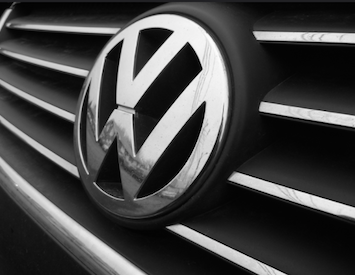Volkswagen’s latest scandal, where monkeys inhaled diesel fumes in rigged cancer tests, shows yet again that corporations can’t be trusted with social responsibility, writes Professor Carl Rhodes.
JUST AS VOLKSWAGEN was recovering from the 2015 diesel emissions scandal, it is in the press again with revelations that it employed researchers who used monkeys to test the effects of exhaust fume inhalation.
It seems that VW employees just can’t help themselves from engaging in the most ethically dubious means possible to help their company succeed. In this case, they wanted to ensure market expansion by raising false doubts about whether or not diesel emissions were linked to cancer.
Despite the veneer of science, the tests were rigged. The car being used was a VW Beetle that had been doctored to produce less pollution than the on-road version. The fumes from the vehicle were piped into a room where ten monkeys sat watching cartoons.
As politicians and environmental groups began voicing criticisms, the company quickly called for a formal inquiry.
VW supervisory board chairman, Hans Dieter Poetsch, declared:
“Whoever is responsible for this must of course be held accountable."
This statement is a clear attempt to absolve the corporation from responsibility by blaming some rogue employee, with Poetsch not really accepting any culpability on behalf of his company. The need for an inquiry is also an admission that VW has no idea of what was going on in its own backyard.
This scandal arises at a time when corporations are widely touting that they should have deeply held commitments to a social purpose and responsibility.
Earlier this month, Larry Fink, CEO of $6 trillion investment firm BlackRock Inc wrote a letter to the CEOs of the world’s largest corporations, stating:
'Society is demanding that companies, both public and private, serve a social purpose.'
Larry’s letter quickly became a talking point at last week’s World Economic Forum in Davos, Switzerland, when international business and political luminaries met to discuss how to create “a shared future in a fractured world”. For the Davos delegates, the question was about incorporating sustainability into business strategy — not least in a manner to avoid the regulatory intervention.
The most sanguine, if not naïve, observer proposed that this amounts to nothing less that than a “reimagining of global capitalism” focussed on long-term economic growth and widespread social contributions. If you read Fink’s letter a bit more carefully, you’ll see that he believes that a company without a social purpose 'will provide subpar returns to the investors'. No changes to capitalism here — just a debate over the best way to capitalise.
VW has already embraced corporate social responsibility with its current "sustainability policy", stating its 'commitment to sustainable, transparent and responsible management'. Clearly, that policy wasn’t upheld with the monkey testing. This had also been the case with the 2015 emission scandal, where there was no transparency until the company had been publicly accused. Responsibility did not come at the hands of a socially minded executive but was demanded by a rightfully dissenting public.
If we believe the executives at VW, this is the first they have heard of these experiments while shifting the blame from the corporation itself to the individual involved.
The public statement stated:
“We apologise for the misconduct and the lack of judgment of individuals”.
This raises serious questions about the extent to which any corporation can live up to the type of social responsibility or social purpose that Fink and his elite friends at Davos are advocating.
What we have seen again in this new VW scandal, is that the corporation has only responded to calls for responsibility after it has been held to account by society. In this case, it happened through a U.S. lawsuit against the company followed by an exposé in the New York Times and the Netflix documentary series, Dirty Money.
While the VW refrain is one of blaming the “mistakes and misjudgements of individuals”, there is no sign of any social responsibility emerging from the company until it was pushed into it by public pressure — and even then the first response is blame shifting. This confirms the limits of corporate rhetoric around social purpose and social responsibility.
Larry Fink might well write to CEOs insisting that 'to sustain that performance … you must also understand the societal impact of your business', but that is only half the story. After all, VW claims that as far as the monkey testing goes, it had no knowledge of any societal effects until the press and activists made them painfully aware of it.
By Fink’s account, it is up to CEOs themselves to build social awareness and to respond purposefully. But if we follow this logic what we get is not social purpose but rather, increasing levels of corporate social control.
In this latest VW scandal, we have seen once again that citizens and democratic institutions can and should hold corporations responsible for their actions, and that corporate social responsibility is something that needs to be demanded by society rather than left in the hands of corporations.
Carl Rhodes is Professor of Organisation Studies at the University of Technology, Sydney. You can follow Professor Rhodes on Twitter @ProfCarlRhodes.

This work is licensed under a Creative Commons Attribution-NonCommercial-NoDerivs 3.0 Australia License
Monthly Donation
Single Donation
Support independent journalism. Subscribe to IA for just $5.











